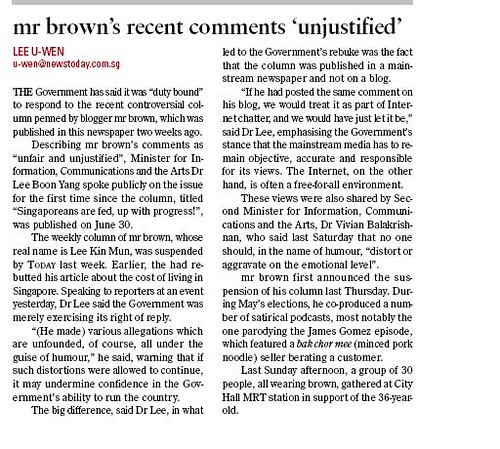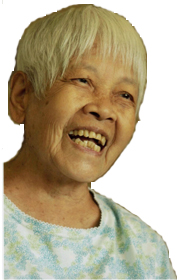Sunday Times, July 30, 2006
Make more money by spending less
Michael Masterson, Author
CARLOS, one of my jiujitsu instructors, is living the American dream. He came to this country and earned his fortune as a champion fighter.
For the first three years of his time here, he managed to support himself and his wife on less than US$15,000 (S$23,850) a year.
Now he fights at the top level. His typical payday has gone from US$500 to US$25,000.
'The problem with making more money,' he told me, 'is that every time you make an extra dollar, you spend two'.
How true. The first couch I bought cost US$400. I remember thinking, 'It doesn't get any better than this.'
And it never did. The couches I buy today give me no more pleasure, comfort or space. Yet they cost much more.
What happened? The truth is that my own success victimised me. In earning more, I allowed myself to spend more on things like couches.
If I had gotten more out of it, that would have been fine. But I didn't. Master wealth builders understand a secret that took me years to learn: You have to keep your spending down while your income increases.
Why do we feel the need to spend more when we make more?
Here is what I think. When you are poor, you are surrounded by things you think you would like to own but cannot afford to buy.
After a while, you equate the feeling of unsatisfied desire with poverty.
If your idea of being wealthy is filled with images of mansions and sailboats and expensive watches, you are going to have a difficult time saving money.
And saving money is another one of the common habits of people who know how to build wealth.
You must teach yourself to feel the truth: that every time you buy a depreciating asset, you become poorer. Remind yourself that most of the junk you buy becomes unused after a few months and does not provide you with that much value anyway.
Heheh. People are often surprised to hear that I live in a HDB flat. They tend to have assumed that because I'm an investment banking lawyer, I must surely be living in some swanky condo.
They are even more surprised when I tell them that I travel by MRT and taxi (I don't own a car - I never have). These people then assume that I'm living thriftily because I'm the sole breadwinner and my wife stays at home to look after our kids.
Then they hear that my wife works too and she isn't exactly drawing a puny salary either. She's a lawyer too and she heads the legal department of one division of an MNC. She oversees that division's legal matters in Singapore, Hong Kong, the United Kingdom, the United Arab Emirates, Australia, New Zealand, Malaysia, Cameroon and Nigeria.
"But surely you must be planning to move to a condo sometime in the future, yes? And buy a nice car? Or even a not-so-nice-but-cheaper-and-still-decent one?" those people ask.
No, no and no, I answer.
Then they notice that I'm wearing a Casio watch, and that my handphone belongs to that long-gone era when handphones didn't have cameras in them ... and they start wondering whether it's true that lawyers earn a lot of money, or maybe my kind of job is at risk of being outsourced to India, or something like that ... because why else would I living the way I live?
Heheh. I don't bother to explain anything to them.
The simple, "nutshell" kind of answer is that I prefer to save my money and invest it (which is true - I am quite conscientious and disciplined about investing my money).
Going a little deeper, however, the reason why I'm such a disciplined investor is that it's such a waste of money to let it just sit idle. You should either spend it or invest it. And since I spend little of it, I end up, by default, investing a lot of it.
But that only brings us back to the question of why I spend so little of it, in the first place.
Right around here, I could launch into a long, rambling, philosophical discussion about money and life and happiness. But maybe I'll just refer to this old post of mine.

What do these two Masai people have to do
with Mr Wang's post? Click on image to find out.
+++++++++
Technorati: Singapore.













